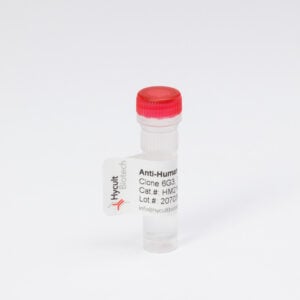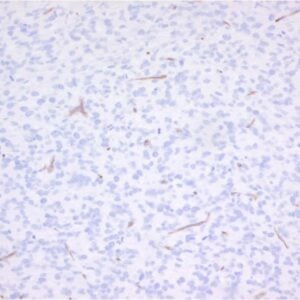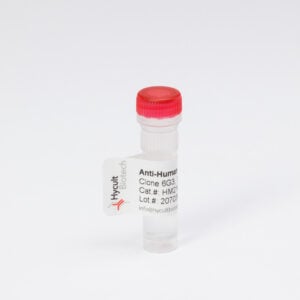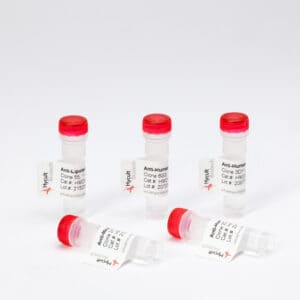
BPI, Human, mAb 4H5
€133.00 – €510.00
The monoclonal antibody 4H5 reacts specifically with full length human natural and recombinant Bactericidal Permeability Increasing protein (BPI). The antimicrobial protein BPI is a 55 kDa protein found in the primary (azurophilic) granules of human neutrophils and has also been detected on surface of neutrophils, small intestinal and oral epithelial cells. BPI is a bactericidal compound that is present in polymorphonuclear cells (PMN) and in lower levels in the specific granules of eosinophils. BPI possesses high affinity toward the lipid A region of lipopolysaccharides (LPS) that comprise the outer leaflet of the gram-negative bacterial outer membrane. Binding of BPI to the lipid A moiety of LPS exerts multiple anti-infective activities against gram-negative bacteria: 1) cytotoxicity via sequential damage to bacterial outer and inner lipid membranes, 2) neutralization of gram-negative bacterial LPS, 3) opsonization of bacteria to enhance phagocytosis by neutrophils. Airway epithelial cells constitutively express the BPI gene and produce the BPI protein and, therefore, BPI may be a critical determinant in the development of LPS-triggered airways disease. Inflammation induced by LPS possibly contributes to the development of rapid airflow decline, a serious and often fatal complication of hematopoietic cell transplantation. Furthermore, a 21 kDa bioactive recombinant fragment of BPI, rBPI21, was shown to confer a survival advantage against invasive pneumococcal disease by binding to the gram-positive bacterial pathogen, pneumolysin. The monoclonal antibody 4H5 recognizes only free BPI and does not interact with BPI that has formed a complex with LPS.





